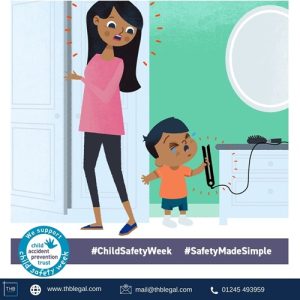Understanding the Basics of Marriage Annulment
Marriage annulment is often misunderstood. Unlike divorce, which ends a legally valid marriage, an...- 19 January 2026
Posted: 31 May 2023
Local Authorities have a general duty to safeguard the children in their area, reduce inequalities between young children in their area, and improve their wellbeing. Every Local Authority should take reasonable steps to prevent children within their area suffering ill-treatment or neglect. Due to this, the Local Authority must get involved where they have concerns that a child is suffering or is at risk of significant harm.
Wellbeing includes physical health, mental health, and emotional wellbeing; protection from harm and neglect; and social and economic wellbeing.
Where a child is not in immediate danger, there will need to be an assessment of the child’s needs. It is the duty of the Local Authority to investigate these concerns and make a decision about what happens next. There are various child protection measures that can be taken.

A child will be considered “in need” if they require additional support and services to achieve or maintain a reasonable standard of health or development.
Children’s services should carry out an assessment, following which a Child in Need Plan, if recommended, should be written.
A Child in Need plan includes:
Child in Need plans are supportive in nature; they do not mean your children will be removed form your care. If social services continue to be concerned, they may consider further child protection measures.
A child protection conference can be held where a child is assessed as being a risk of significant harm. Relevant professionals will be in attendance to share information and work together to identify risks and outline what needs to be done to protect the child. Relevant professionals could include children’s services, the health visitor, the child’s school, police, and the child’s GP.
At a child protection conference, the professionals will create a Child Protection Plan. This will set out what action needs to be taken, by whom and by what deadline. Family members and professionals will work together to implement the plan to keep the child safe from harm. There will be regular review child protection conference, where the child protection plan will be reviewed.
A Child Protection Plan includes:
Child protection plans are confidential.
A child protection plan ends when either the Local Authority decides the child is no longer suffering or at risk of significant harm, the child reaches the age of 18, or the child moves abroad.
If the Local Authority doesn’t feel that the plan is enough to keep the child safe, they may initiate care proceedings.
Unless there is a significant level of risk, there will be great efforts to keep the child with their family before care proceedings are started. The last step before care proceedings begin, is the Public Law Outline (PLO) process.
Once it is decided that pre-proceedings work should start, a letter will be sent to the people with parental responsibility for the child, usually the parents. This outlines the main concerns and the help provided so far. If you receive one of these letters, you should take it to a solicitor immediately. The letter entitles you to free legal advice.
Following a PLO letter being sent, there will be a Pre-Proceedings meeting with the parents and the Local Authority, together with their legal representatives. In this meeting, it will be discussed what can be done to avoid court proceedings. Parents will be told what changes need to be made, and there will be a period of time allowed for parents to make necessary changes. During this time assessments may take place.
If throughout the PLO process the Local Authority do not believe sufficient changes have been made, they will consider whether to issue Court Proceedings. If positive progress is made, then the PLO process is concluded although a child may remain on a child protection plan or as a child in need for a further period of time.
If you are interested in a confidential chat with one of our family law solicitors regarding how they can support you with your children’s matters, or you would like further information on the services we offer, please call 01245 493959 or email
- 19 January 2026
- 17 January 2026
- 13 January 2026